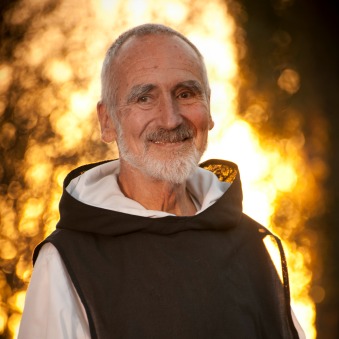Q: What do I do when I need to speak out against my friend without betraying gratitude? — Gina, Boston
A: +That is where the notion of the prophet comes in. The prophet does not typically foretell the future. Rather, the prophet speaks out against the community for a higher, divine inspiration. S/he speaks out against the community but stays in the community. And that is what is so difficult.
When we say “community” here, we think of the smallest possible community. Just think of friendship. That is also a community. Just two. Frequently in the course of the history of a friendship a moment comes in which you have to speak out against your friend but stay in the friendship. If you speak out against the friend, you can still say, “I belong,” and stay in this relationship. “But I must speak out against it. I must correct it. I must speak for a higher reality within it.” If you can say this and stay within the friendship, you take a prophetic stance.
Staying in is often difficult. And speaking out is difficult. So then, you might think that one of the two would be enough. But, if you only speak out, and then quickly get out, that is not a prophetic stance. You are no longer a prophet. You are an outside critic.
On the other hand, if you stay in — which is difficult enough — if you blend with the woodwork, then that’s also not a prophetic stance, because you’re not standing up. But if you stay in and speak out, you have both poles that characterize the cross in the Christian tradition. The vertical pole is the staying in, and the horizontal beam is the speaking out. Where those two come together, whether that’s in a friendship or in a political or religious community, you have prophecy, and that makes for growth.
— Your Brother David
Build a Life of Belonging
Take a meaningful step to heal the divisiveness in the world. In this self-guided series you will receive guidance, inspiration, and practices to help you cultivate a deeper sense of belonging in your daily life.



Comments are now closed on this page. We invite you to join the conversation in our new community space. We hope to see you there!